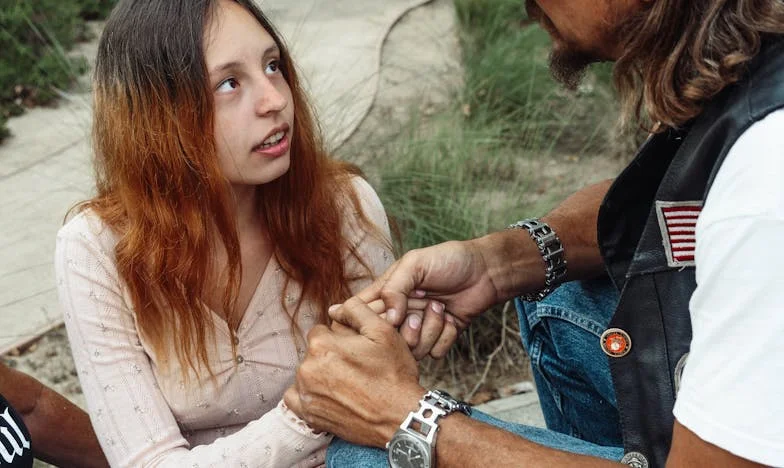“I Won’t Let Mom Dictate My Life”: Navigating Solo Through My Struggles
Growing up, I always admired my mother, Eva. She was the pillar of resilience in our small town of Carsonville, enduring more than her fair share of hardships. My father, Ralph, was not the man everyone thought he was. Behind closed doors, he was a different person—one who didn’t shy away from raising his voice or his hand. Yet, through it all, Eva remained steadfast, a decision she wore like a badge of honor.
When I, Naomi, found myself walking down a similar path with Vincent, I believed I could turn to my mother for support. However, the reality was far different from what I had hoped.
Vincent and I married young, full of dreams and aspirations. But as the years passed, the pressures of life began to erode our foundation. When our daughter Cora was born, our relationship was already strained, hanging by a thread. I thought Cora’s arrival would bring us closer, but it only highlighted our growing differences. Eventually, Vincent left, and I was alone, a single mother at 29.
I reached out to Eva, hoping for comfort, perhaps even advice. Instead, I was met with cold indifference. “You need to learn from this, Naomi,” she said sternly. “I managed on my own; you’ll have to do the same.”
Her words stung, laden with disappointment. It wasn’t just that she refused to help with Cora—it was her complete withdrawal of emotional support. According to her, my failed marriage was a bed I had made myself, and now I had to lie in it.
Days turned into weeks, and weeks into months. I juggled multiple jobs to make ends meet, each day a repeat of the last: wake up, work, care for Cora, sleep, repeat. The exhaustion was palpable, but whenever I thought of reaching out to Eva, I remembered her words and refrained.
One particularly grueling day, I came home to find Cora feverish and crying. Panic set in as her temperature soared, and I rushed her to the hospital. Alone in the sterile hospital room, watching Cora battle a severe infection, I felt the weight of my isolation more than ever.
After a long night, Cora stabilized, but the relief was short-lived. The next morning, I called Eva, hoping the crisis might have softened her stance. “Mom, we really could use your help,” I pleaded.
There was a pause on the line—a momentary lapse that gave me a flicker of hope. But then, her voice, icy as ever, broke the silence. “You need to handle your own affairs, Naomi. You’ll be stronger for it.”
The call ended, leaving a silence that echoed through my small, cluttered apartment. I looked at Cora, her small face peaceful in sleep, unaware of the harshness of the world outside her dreams.
In that moment, I realized that my journey would be a solitary one. There would be no maternal guidance, no shared laughter over a cup of coffee, no helping hands. Just me, my daughter, and the path ahead, fraught with challenges but ours alone to navigate.
As the sun rose, casting light on the remnants of a long night, I made a silent vow to Cora—and to myself. We would make it through, not because we weren’t offered another choice, but because we weren’t given one.
